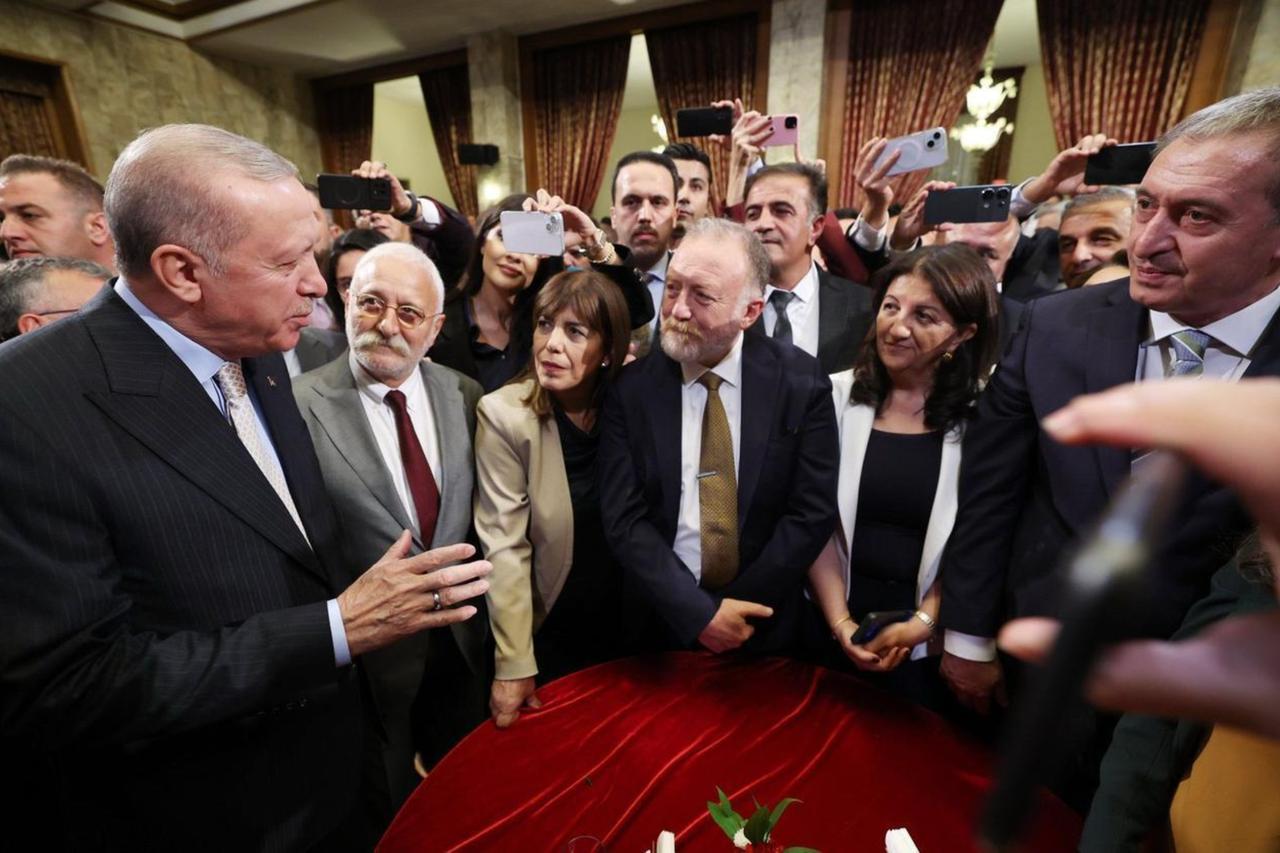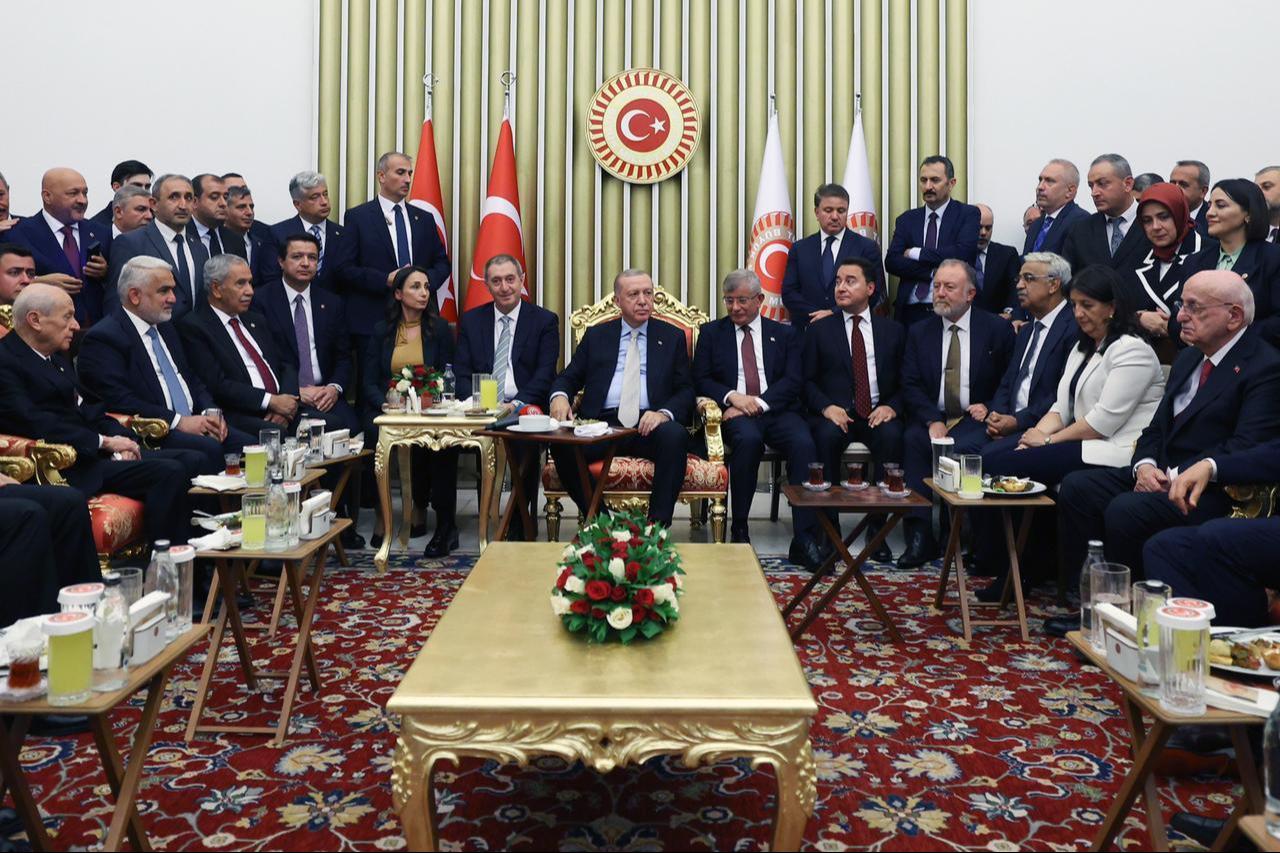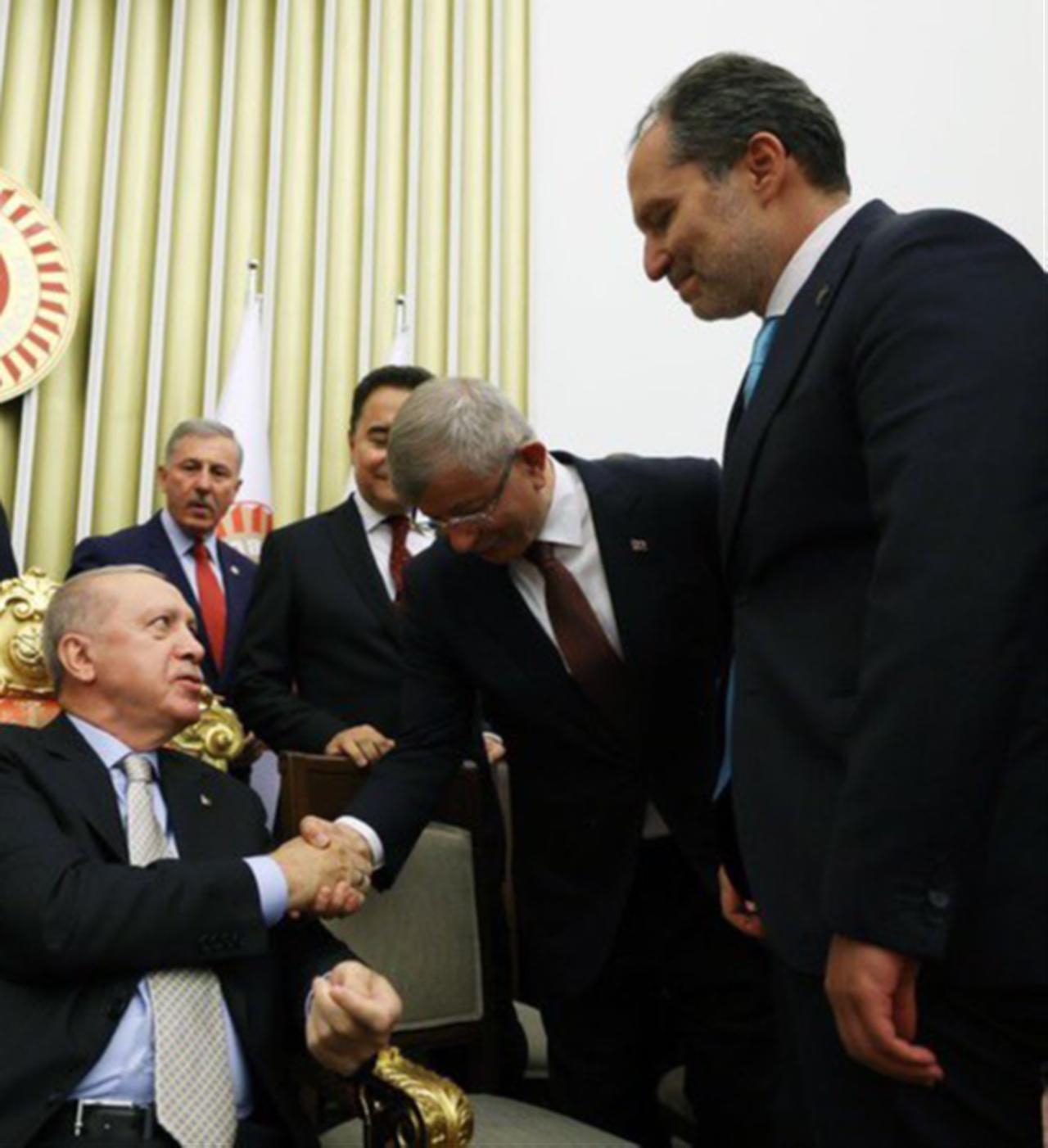
The opening of the 28th Legislative Term’s fourth year in the Turkish Parliament began under controversy. The main opposition Republican People’s Party (CHP), along with the Workers and Labor parties, boycotted the session in protest against President Recep Tayyip Erdogan’s participation.
The ceremony, nonetheless, drew attention with scenes of opposition figures and opposition press engaging warmly with President Erdogan during the reception. The president’s gestures and statements, emphasizing togetherness and national interest over political differences, were seen as an attempt to project consensus.

Images of smiling exchanges between Erdogan and opposition leaders triggered intense backlash against the opposition figures who appeared alongside him. On social media, many CHP supporters criticized these leaders and journalists for giving the impression of admiration instead of maintaining a stance against the government coalition and the President.
The strongest criticism was directed at Peoples' Equality and Democracy Party (DEM Party) co-chairs Tuncer Bakirhan and Tulay Hatimogullari, whose presence at Erdogan’s side was interpreted as a natural outcome of the government’s “terror-free Türkiye” project, which has emphasized dialogue with prominent politicians among the Kurdish political movement.
At the same time, former Prime Minister Ahmet Davutoglu, now chairman of the Future Party (GP), and former Deputy Prime Minister Ali Babacan, head of the Democracy and Progress Party (DEVA Party), were seen shaking hands and sitting next to Erdogan.
For CHP voters, these scenes symbolized a broader erosion of opposition unity and cast doubt on the credibility of leaders who once positioned themselves as Erdogan’s critics.
The dynamics reflect two central lines in Turkish politics today. The first is the Kurdish issue and the prospect of renewed negotiations, which also intersect with foreign policy in Syria.
The second point is the status and positioning of the CHP, whether through legal, administrative, or political issues. In this equation, DEM becomes the most delicate actor—engaged by the government, but vulnerable to criticism from both its base and wider opposition circles.
Over the past years, the DEM Party was the primary target of political exclusion, routinely depicted by the government as outside the bounds of legitimacy. This reception flipped the script. By welcoming DEM leaders into high-visibility interactions, Erdogan reframed the narrative—positioning the CHP as the new party on the margins.
The move not only reshapes political fault lines but also deepens the CHP’s sense of isolation. For a party already struggling with internal divisions, the optics of Erdogan consolidating ties with other opposition actors underscore the challenges ahead. The contrast between DEM’s inclusion and CHP’s exclusion suggests a deliberate recalibration of Erdogan’s strategy.

The reception also reflected Erdogan’s broader effort to reopen dialogue with various corners of the opposition spectrum. By placing Babacan and Davutoglu back at his side—years after their break with the ruling Justice and Development Party (AK Party)—he signaled openness to new partnerships. Smaller conservative and nationalist parties also featured prominently, reinforcing the impression that Erdogan is capable of crafting a coalition dynamic beyond the boundaries of his formal alliance with the Nationalist Movement Party (MHP).
This widening circle of contacts indicates that Erdogan is not only seeking to manage Kurdish politics through DEM but also to prevent a unified opposition bloc from emerging. His ability to fragment the opposition by drawing in different actors could become a decisive factor in shaping the political agenda.
The choreography of the opening day has already fueled speculation about what comes next. Analysts suggest that Erdogan may be laying the groundwork for renewed discussions on constitutional reform—an agenda that could gain traction if opposition parties beyond the CHP are willing to cooperate.
References to a “terror-free Türkiye” project and earlier attempts at political reconciliation raise the possibility of a broader initiative. Whether this becomes a genuine dialogue or remains a symbolic performance will depend on how far Erdogan is willing to go in engaging the DEM Party, and whether other opposition leaders are prepared to align with him.
For now, the images from Parliament have reset the political conversation. Erdogan projected confidence in his ability to build legitimacy without the CHP, leaving the main opposition party increasingly isolated, while testing the boundaries of new alliances that could reshape Türkiye’s political landscape.